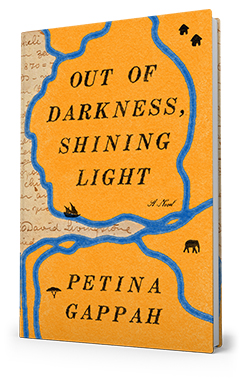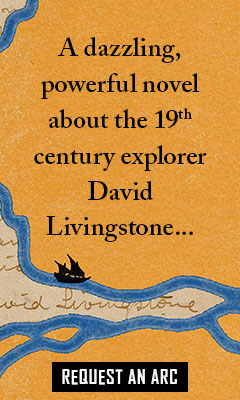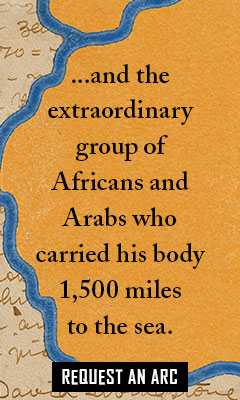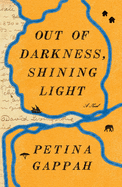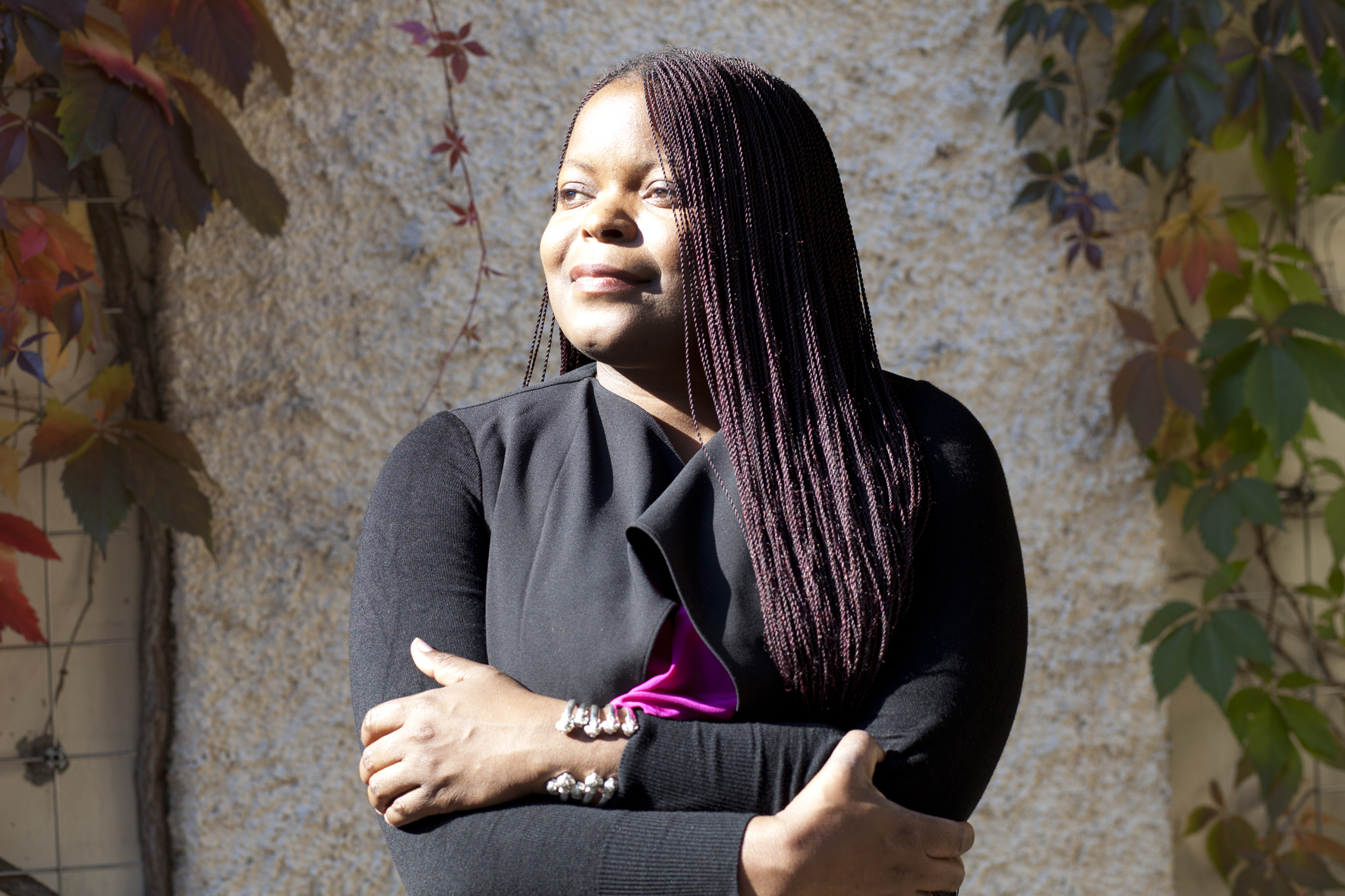Out of Darkness, Shining Light
by Petina Gappah
Zimbabwean writer Petina Gappah (The Book of Memory) takes readers on an epic adventure through the wilds of 19th-century Africa in her novel Out of Darkness, Shining Light. Following the men and women who deliver the body of Scottish explorer Dr. David Livingstone 1,500 miles from Zambia to Zanzibar, the plot evolves through the narration of two members of the group: Livingstone's cook and a Christian freed slave, both individuals who have faded into the obscurity of history. Gappah returns them to the forefront of this amazing pilgrimage and brings both the time and the terrain into focus for her audience with humor, horror and all the wonder unique to the continent.
Halima is a smart, spirited woman. Readers will find that her sharp wit and cagey nature combine for a fascinating perspective of the funeral trek. She has strong opinions about everyone and everything: "He puts me in mind of a plucked chicken that has sat too long without being cooked, so that when you see the white flesh, you think all is well within, but when you slice it open, it is all green and crawling with maggots, and the smell hits you like a stone to your head. A maggoty fellow if I ever saw one is that Chirango." But she also offers insight into the lives of the slaves and, more specifically, the enslaved women. Sometimes that view is comic: "Misozi, as always, was slow to catch on, but Ntaoéka, Laede, and I looked at each other in perfect understanding. This is how we normally managed things when we wanted something. We talked it over among ourselves first, then with our men separately, until they believed that our thinking was their own."
Through Halima, Gappah also portrays the atrocities of African slavery. Halima has spent her life as a piece of property; she knows the nightmare of those in bondage. Her relationship with Livingstone is touching. While she does not understand his obsession with finding the source of the Nile, she cares for him and nourishes him with her meals, and trusts that he will fulfill his promise to buy her a house with a door. She dreams of her door throughout the journey, "a door that would truly be a marvel to all."
Contrasting Halima is the pious, egocentric freed slave Jacob Wainwright, whose goal is to be ordained and convert everyone to Christianity. He's critical of Dr. Livingstone because in Livingstone's explorations on the continent, he didn't turn more Africans to the religion. Jacob is certain Livingstone's priorities were in the wrong order. Like Halima, Jacob is full of opinions about others. And while he has no room to forgive them, he has ample rationalizations for his own immoral behavior: "I comfort myself with the certainty that it is perhaps as well that I know what it is to sin, for I have, until this moment been completely without blemish. It is surely right that one who is to be a clergyman should know, firsthand, what it means to be a sinner." The pedestal Jacob puts himself on gives him plenty of height to fall from. Through the absurdity of Jacob's character and the pragmatism of Halima's, Gappah delivers her own sermon on the hypocrisy of Christianity and the efforts to force this religious belief on the people of Africa. It comes across as anything but preachy, but still inhabits the souls it touches.
There's a mystery woven into the entertainment of these two colorful characters narrating an arduous trip: people in their group are inexplicably dying. At first the deaths seem to be accidents, but when one demise turns out to be homicide, the others become suspect as well. As the band of travelers begins to dwindle, the likelihood of reaching Zanzibar looks smaller and smaller.
In Out of Darkness, Shining Light, Gappah has managed to artfully blend brilliant humor with a strong sense of place and themes surrounding the dark issues of slavery and colonization. She delivers an engrossing adventure laced with details that history books have neglected, and offers glimmers of hope through her resilient characters. The voices she's chosen to tell this powerful story are stark reminders of all that is lost when such perspectives die. Gappah paints an emotionally charged image of the slaves who are unable to continue walking. Their captors chain them to trees and leave them to die. The infrequently traveled paths mean that often all that is found by the next traveler is a pile of bones at the base of the tree. For the voices of Halima and Jacob, Gappah is their release. She's freed their stories from those chains in order for them to live and shine their light. --Jen Forbus



